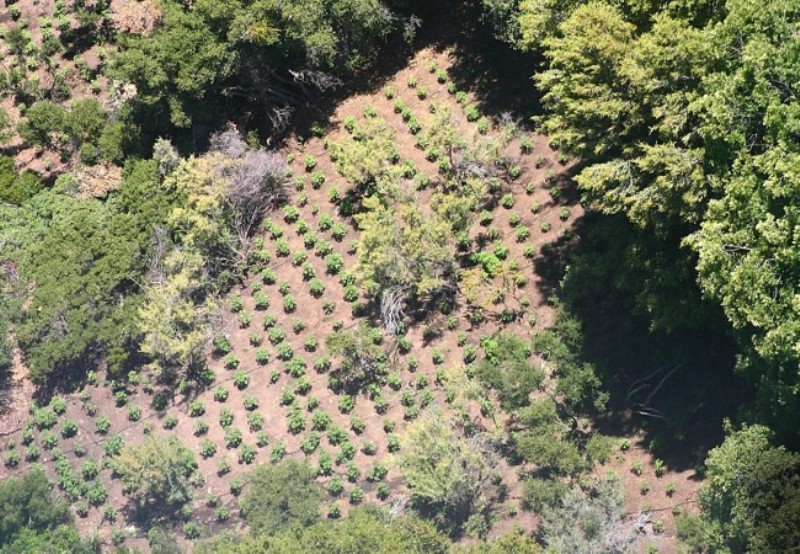
The ongoing severe drought in California forced Gov. Jerry Brown to sign into law a measure that will levy steep civil fines against marijuana growers who are found guilty of damaging the environment with their crops.
The bill, which was signed into law on August 7, seeks to combat an increase in the number of marijuana operations in state park lands and forests. In 2014, state agents discovered more than 135 dams or diversions in rivers and streams used to hydrate marijuana grows, which resulted in the loss of more than five million gallons of water to the state.
In one case, a grow site took away more than 1,400 gallons a day from San Vicente Creek in Santa Cruz County, which hosts a small population of the federally endangered coho salmon.
“Marijuana plants use six to eight gallons of water per plant, per day, and are a direct hazard to wildlife that eats the plants,” said Brian Naslund, assistant chief of California’s Department of Fish and Wildlife in a press release issued last year.
In addition to civil fines already set in place for diverting streams, growers may face up to $40,000 for illegally dumping hazardous materials into rivers and streams, and fines up to $10,000 for removing trees or endangering or killing wildlife.
Marijuana grows often require flat land, which would necessitate the removal of trees and wildlife, while chemical pesticides and fertilizer runoff used in day-to-day operations are often released into rivers and streams. Sen. Bill Monning (D-Carmel), who introduced the measure that was signed into law, stated that the cost to clean up and restore grow sites can reach $15,000 per acre.